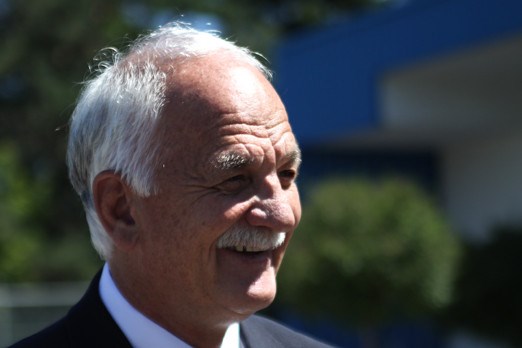It’s absolutely critical that local MPs stick to their guns and vote to abolish the long-gun registry, the federal minister of public safety says.
Vic Toews, during a Friday visit to Thunder Bay, said the Conservatives have been fighting the long-gun registry for at least a decade, since his days with the now defunct Canadian Alliance party.
While the private member’s bill passed second reading with the help of 12 NDP MPs and eight Liberals, Toews said he’s concerned that the Conservatives won’t get that support again when the bill comes up for third reading in September.
Bill C-391 is a private member’s bill introduced by MP Candice Hoeppner (Con. Portage-Lisgar). If passed, the bill would amend the Criminal Code and Firearms Act to repeal the long-gun registry.
"In committee the Liberals stalled the bill and then essentially gutted the bill with the support of the New Democrats and the Bloc," said Toews. "The main issue is the lack of commitment by MPs from other parties to the abolishment of the long-gun registry."
With Liberal leader Michael Ignatieff poised to whip his party to vote against the bill, which would keep the controversial registry on the books, Toews said he thinks the NDP will allow some of its members to vote with the Conservatives to show that some of the party are against the registry, but not all 12. Toews is concerned that might mean forcing local MPs to change their minds.
MP Bruce Hyer (NDP Thunder Bay-Superior North) said he’s been consistent through three elections and six years and that he will vote to end the registry on Sept. 21. Fellow MP John Rafferty (NDP, Thunder Bay-Rainy River) has done the same. Hyer said there’s no reason to change his mind now.
"I plan to keep my word…and stand firm," Hyer said. "I plan to vote to end the long-gun registry."
Hyer said he’s disappointed that Toews would suggest otherwise.
Both Toews and Hyer say the registry is redundant and does nothing to prevent crime.
"It treats farmers and hunters and trappers like criminals. It wastes resources that could be spent on pensions or housing or healthcare or improve policing," Hyer said.
It’s not money well spent, said Toews.
"We would rather focus our resources on actually helping frontline police officers and other crime initiatives," Toews said.
Toews said while police associations have stated the registsry is an effective tool for policing, he’s convinced that the issue is actually deeply divisive within Canadian police forces.
"They’re putting forward a united face but I know in speaking to officers as recently as this week, high ranking police officers who do not support the long-gun registry," he said. "They’re mainly doing it to preserve some sort of unity within the police force."
